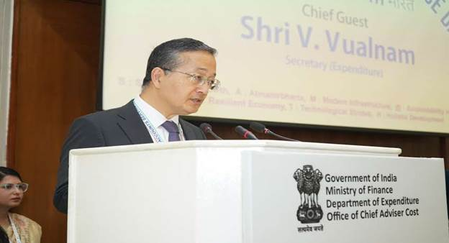
New Delhi, Aug 10 (IANS) The Chinese Communist Party (CCP) is expanding its influence and surveillance operations on US soil. From academic institutions and cultural organisations to covert intimidation of dissidents, the CCP’s reach now extends into the democratic society of the US.
This campaign has been launched by the CCP to protect its image, suppress criticism and implement ideological conformity – even among those who have left China for freedom. The extraterritorial campaign not only affects the safety of Chinese nationals living abroad but also the integrity of US institutions and values, European Times said in a report. These outposts, allegedly disguised as community services centres, were reportedly operating to monitor and intimidate members of the Chinese diaspora, especially those who were critical of the CCP.
The FBI’s arrest of two men in New York for operating these illegal stations was a rare moment of public accountability. According to prosecutors, these two men were operating on the instructions given by China’s Ministry of Public Security, and they had tried to coerce a Chinese dissident to head back to China. These actions demonstrate how far China is ready to go in extending its authoritarian control into democratic societies.
The report has described China’s plan of transnational repression as “persistent and systematic.” According to the report, the CCP wants to silence critics, particularly ethnic minorities, democracy activists, and religious practitioners, who have escaped its reach but continue to express their opposition while living in other nations.
Chinese students and scholars in the US have reported that they were being monitored, harassed or coerced. Some have expressed fear that their families back home might face repercussions if they voice opposition. Professors who teach topics that are sensitive to the Chinese government, including Hong Kong, Tiananmen Square massacre, Tibet and Xinjiang, have faced online threats and harassment. The example of these threats includes Uyghur Americans who receive anonymous threats or face threats through family members in Xinjiang.
China’s influence operations are not confined to the shadows as much of its presence is overt, facilitated through economic investments and cultural diplomacy. The CCP’s United Front Work Department, a vast bureaucratic apparatus the work of shaping foreign public opinion has enhanced its operations globally, including in the US.
Meanwhile, Chinese students’ organisations on the US campuses, some of which reportedly have ties with Chinese consulates, have been accused of monitoring fellow students and reporting “unpatriotic” behaviour. This causes fear and self-censorship within the academic sphere, undermining the very freedom of inquiry that higher education in the US is based upon, the European Times said in a report.
The CCP wants to project power beyond its borders in the digital realm. China’s use of disinformation campaigns, cyber espionage, and digital surveillance tools is well documented. Pro-Beijing networks frequently exploit social media platforms like Twitter, Facebook, and YouTube to discredit critics, promote CCP narratives, and harass activists. Many of these accounts engage in concerted disinformation campaigns aimed to aimed to distort public discourse, undermine trust in democratic institutions, and create divisions.
Furthermore, Chinese tech companies that function across the globe often have to obey laws which require cooperation with the Chinese state. This has raised red flags among policymakers, especially with apps like TikTok, which is owned by China-based ByteDance. Concerns have been raised not just for data privacy and potential censorship but also the psychological and cultural influence of content algorithms that are in accordance with the interests of the CCP, according to the report.
China’s overseas repression also involves a “lawfare” tool, which means using legal systems to attack critics. Chinese officials have attempted to manipulate international extradition treaties, Interpol notices, and bilateral law enforcement agreements to take legal action against exiled dissidents under the guise of criminal charges. At the same time, Beijing uses lawsuits and legal intimidation to suppress journalism and scholarship critical of the Chinese regime, the report said.
The message CCP seeks to send through these tactics is that there is no safe haven. Criticism of the CCP may follow people, including students, activists, academics, or ordinary citizens, even in the United States. In many cases, the CCP’s long arm not only targets foreign policy elites or national security threats, but those who are targeted are people who want to have basic freedoms like the right to speak, protest and live without fear. The transnational repression and influence efforts of the CCP directly challenge the values that form the foundation of US democracy—freedom of speech, academic freedom, transparency, and human rights.
–IANS
int/akl/vd




